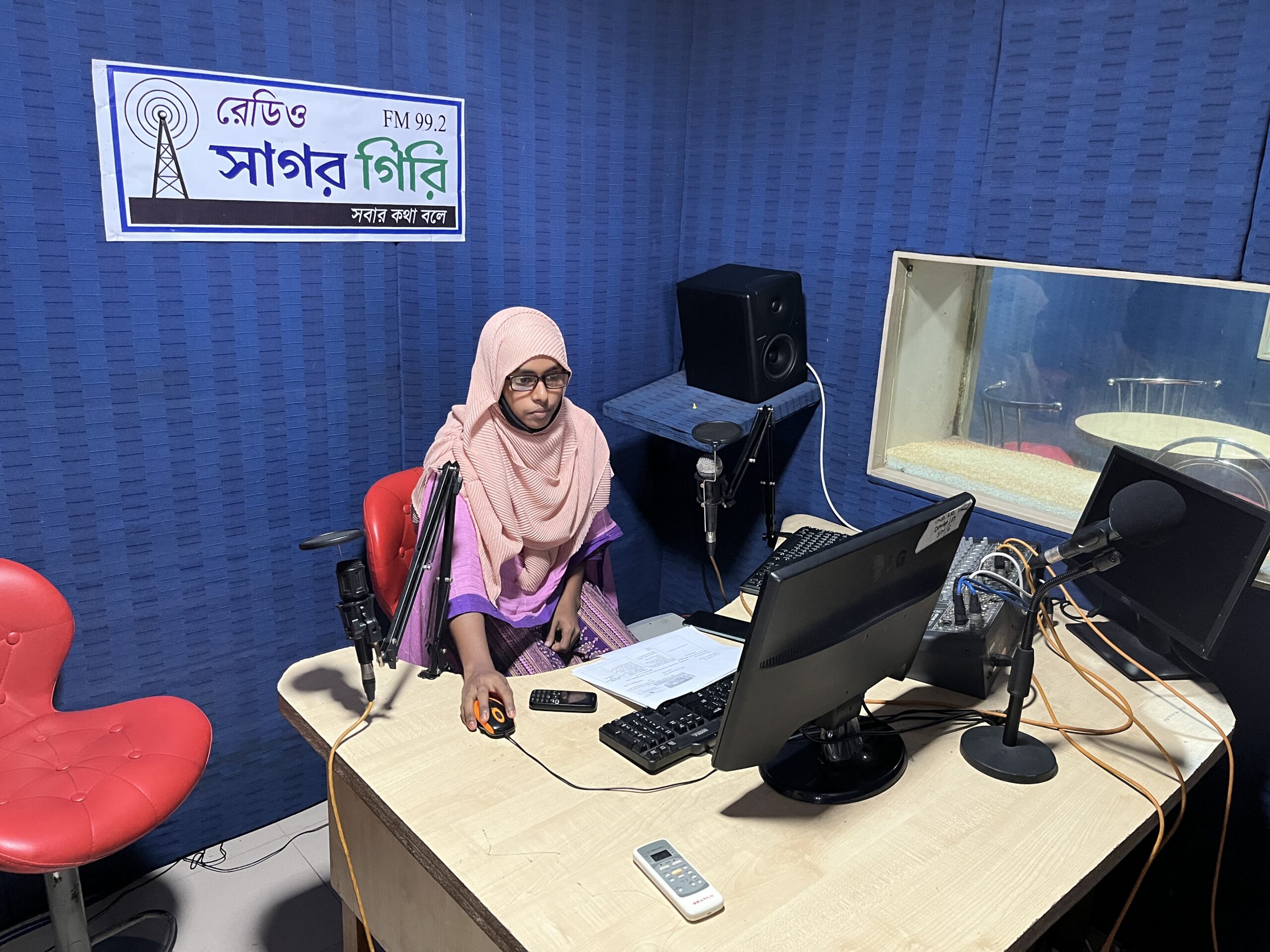This story is about community radio (CR) Sagor Giri and a community of fisherfolks in the Mirjanagor village – both situated in Sitakund, Chattogram, a south-eastern district in, Bangladesh.
An active AMARC member, radio Sagor Giri was established in the year 2012. As per CR regulations of Bangladesh, the station operates with a transmission power of 250 watts to cover a radius of 25 kilometres, reaching approximately eight million people, out of which it estimates that about 200,000-300,000 listeners tune into the station on a regular basis. Radio Sagor Giri broadcasts seven hours per day from 3-10 PM. It has a strength of two full-time and two part-time staff members along with three dedicated field reporters. The station covers weather forecast as well as topics related to education and health mostly. Success stories around issues relating to child marriage, community plantation, conflict mediation, embankment, and the impact of climate change consists of its regular features.
The Mirjanagor village community has a population of approximately 4,000 individuals in 350 households. The monthly income of each household is about 10,000 takas (approximately USD 92). There are about 55 fishing boats owned by 15 households only. The rest of the households rent out the boats from them. The fisherfolk community does not have direct access to the market, preventing them from getting informed about the current market value of their harvest. One of the most important roles played by community radio Sagor Giri is to connect the fishing community with the wholesale market by bringing information about the going price in the market on a daily basis, thus effectively breaking the monopoly of the middlemen.
According to Sanjaya Chowdhury, Station Manager of radio Sagor Giri, the CR prioritizes informing community members about the weather conditions. This is because around 90% of the local livelihood depends on fishing. Cyclones often cause huge losses. The station actively promotes replantation of the mangroves, which is frequently damaged by the ship-breaking industry that carries out its activities close to the village.
During fish breeding season (61 days per year) and when disasters strike, the fisherfolks work in the garment industry, where they are heavily underpaid. Radio Sagor Giri creates contents to raise awareness among the community members about their rights and entitlements. A listeners club formed by the fisherfolk community members, that has among its members children and women, provide valuable feedback to the station on a regular basis so that the radio can finetune its content to match the information needs of the community.
Despite the daunting challenges faced by the fisherfolks of Mirjanagor, community radio Sagor Giri and the community members relentlessly continue their partnership, which both find fulfilling and beneficial.
This article and the photos are contributed by AMARC Asia Pacific.

